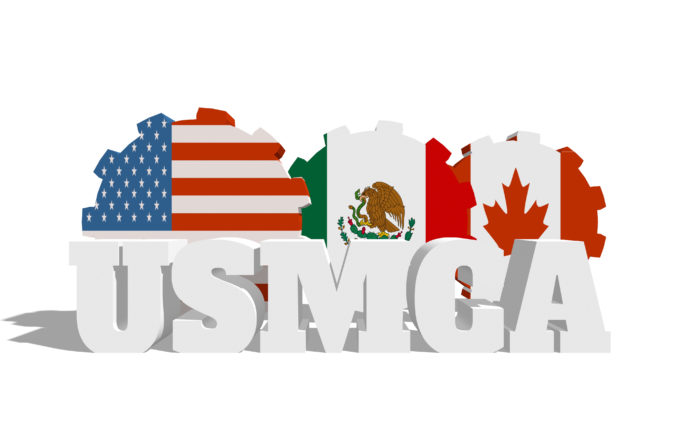
I feel like it was just 1994 and the North American Free Trade Agreement (NAFTA) was ratified and I was hitting the road advising importers how to take advantage of the duty-free provisions. What a feat! U.S. industry had to learn the Rules of Origin, Tariff Shifts, Regional Value Content requirements and how to complete the Certificate of Origin. Now it is 2020 and we are looking at the USMCA (by the way, I can’t help myself but hum to the tune YMCA).
With so much recent focus on tariffs, the passage of the United States Mexico Canada Agreement (USMCA) by the House of Representatives in late December may have gone unnoticed. The House passed the USMCA after more than a year of effort to finalize and will now move to the U.S. Senate to be ratified. While trade has been a hotly debated subject, the USMCA has been a bi-partisan effort.
The good news is that U.S. industry will not be turned upside down by the USMCA. Most of the rules of origin, with some exceptions of course, remain the same. With that said, some specific areas that are affected and outlined by the U.S. Trade Representative (USTR) are noted below:
Automotive Industry
The automotive industry is especially impacted by the new agreement. The NAFTA automotive rules of origin were considered outdated and were viewed to discourage auto manufacturing and investment in the U.S. The USMCA upgraded the rules of origin for automobile and automotive parts to support an increase in U.S. production of automotive parts and employment in this sector. Per the U.S. Trade Representative (USTR), “the USMCA includes a number of innovative provisions designed to incentivize new U.S. investments in the automotive sector, to promote additional purchases of U.S.-produced auto parts, to advance U.S. leadership in automotive R&D, to support additional high-paying U.S. jobs in the automotive sector, and to encourage automakers and suppliers to locate future production of new energy and autonomous vehicles in the United States.”
Energy
Under the USMCA, a zero tariff will be applied to energy products to maintain the free flow of energy across borders of North America. It also “fixes a longstanding issue in allowing hydrocarbons transported through pipelines to qualify as originating, provided that any diluent, regardless of origin, does not constitute more than 40 percent of the volume of the good.” Further, the USMCA “provides new flexibilities in rules of origin certification requirements for oil and gas moving between U.S., Mexico, and Canada.”
Digital Trade
Because the NAFTA was negotiated prior to any digital trade or e-commerce, the USMCA provides the first ever chapter on digital trade that contains strong commitments including promoting open access to government-generated public data, prohibiting the application of customs duties and other discriminatory measures of digital products distributed electronically such as e-books, videos, music, software and games, the facilitation of digital transactions by permitting the use of electronic authentication and electronic signatures, while protecting consumer’s and businesses’ confidential information and guaranteeing that enforceable consumer protections are applied to the digital marketplace.
In addition, the USMCA reflects changes regarding:
- Intellectual Property
- Agriculture
- Environment
- Labor
- Textiles and
- Monitoring and Enforcement
If you would like an evaluation to determine how your business may be impacted by the USMCA, please contact Export Solutions for a free consultation.
Rebecca Yeager is a Trade Compliance Consultant for Export Solutions -- a full-service consulting firm that specializes in helping companies comply with U.S. and international import/export regulations.
